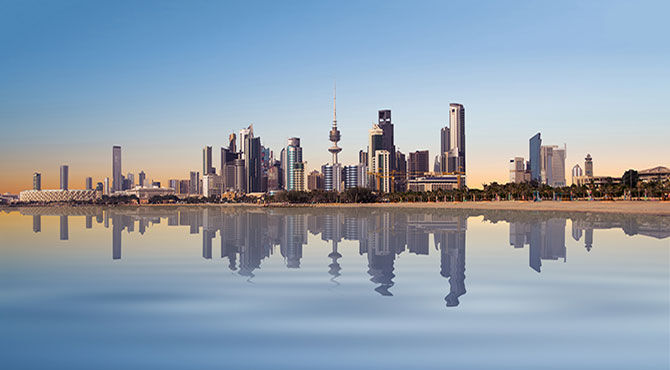Global slowdown pegs expat salaries in Gulf
According to an annual survey conducted by the magazine Gulf Business, the annual increase in expatriate salaries in the Gulf has slowed down dramatically to below inflation rises in the past year.

Reductions in governments' spending
The survey found that across three expatriate groups – Asian, Arab and Western – working in Gulf Cooperation Council (GCC) countries, average monthly salaries increased by just 0.49 per cent, or $54, over the year, bringing the average monthly remuneration to $11,177, itself just below the figure recorded two years ago.Gulf Business said the slowdown in expat pay growth was mainly due to the challenges confronting GCC economies in the face of reductions in governments’ spending, austerity measures and reduced business, most of it linked to lower oil prices.The Gulf Business 2017 Salary Survey, based on returns from regional recruitment companies, polled the average remuneration for 20 roles, including finance, real estate and media, across all six GCC countries.IT and digital marketing bucking the trend
Despite the general wage stagnation, certain sectors bucked the trend with information technology and digital marketing professionals in particularly high demand as the need for technology-based payment solutions, online branding and the development of apps increases.“At present technology is a sector which I believe will not see a slowdown for some time,” said Jennifer Campori, managing director of Charterhouse Middle East.Generally, though, business caution over future prospects was expected to keep expat salaries on a tight rein for the remainder of the year.No pay rise
Ian Giulianotti, director of recruiters Nadia, said more than 40 per cent of his company’s clients reported they received no pay rise over the past 12 months, while the remainder received, at most, a three per cent increase in line with inflation.“This is, I think, only the second time in the 28 years I’ve been with Nadia where I’ve seen that the cost of living increase has been greater than the salary increases,” he said.“If we talk about two or three years ago, the majority of people were looking to change their jobs for financial benefit, to improve the amount of money they had.“At that time most of the candidates that were registering with us would be looking for a 20 to 30 per cent hike. Today they are looking for 5 per cent, and if they can get 10 per cent it’s a real miracle.”Related news:
- Executive Expatriate Relocations supports Relocate Awards
- India and Saudi Arabia latest targets of Brexit trade bids
- AIRINC data sees rents fall, but energy prices rise in UAE
Ms Campori added, “While I believe 2017 is set to be more positive than 2016, salaries will most likely remain flat as businesses still struggle with global market conditions and remain cautious with regard to any extra spending.”Mr Giulianotti also pointed to the likely impact of the introduction of a five per cent value added tax rate across the region from next year. “We’re going to see people asking for pay rises of eight to ten or 12 per cent in 2018 and 2019,” he suggested, adding that such demands were likely to fall on deaf ears because of the economic situation.Gulf Business added, “Despite these factors, recruiters believe the Gulf is unlikely to lose its appeal for expats in the near future with many now staying longer than the traditional three to five years.“Expo 2020 in Dubai and the 2022 World Cup in Qatar are still considered bright spots on the horizon and both Campori and Giulianotti suggest the UAE in particular will continue to attract foreign talent.”For related news and features, visit our Middle East section.Access hundreds of global services and suppliers in our Online Directory
 Get access to our free Global Mobility Toolkit
Get access to our free Global Mobility Toolkit 
©2026 Re:locate magazine, published by Profile Locations, Spray Hill, Hastings Road, Lamberhurst, Kent TN3 8JB. All rights reserved. This publication (or any part thereof) may not be reproduced in any form without the prior written permission of Profile Locations. Profile Locations accepts no liability for the accuracy of the contents or any opinions expressed herein.



































